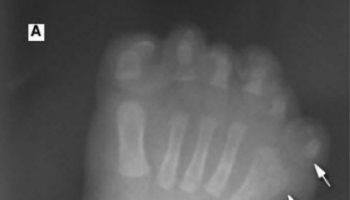What is oliguria
Oliguria is decreased production of urine. Oliguria can be defined as a urine output that is less than 500 mL/day or urine output less than 0.5 mL/kg/hour in adults 1. Oliguria is important and requires investigation because it can be one of the earliest signs of kidney failure; however in most cases it can be reversed.
A decrease in urine output may be a sign of a serious condition. In some cases, it can be life threatening. Most of the time, urine output can be restored with prompt medical care.
You should see your doctor if:
- There is any noticeable and consistent decrease in urine output.
- Your urine looks much darker than usual.
- You have been vomiting or having bouts of diarrhea or high fever and are unable to drink enough fluids to replace what you have lost.
- The decrease in urine output is associated with dizziness, lightheadedness, or rapid pulse.
Oliguria causes
Common causes of oliguria include:
- Dehydration due to vomiting, diarrhea or fever, and a simultaneous lack of adequate fluid intake.
- Total urinary tract obstruction, such as may result from an enlarged prostate.
- Kidney inflammation or damage.
- Medications which may be harmful to the kidneys, including chemotherapy or immunosuppressant drugs and certain antibiotics.
Less common causes include:
- Blood loss
- Severe infection or other medical condition that leads to shock
Oliguria symptoms
Oliguria is decreased production of urine. Oliguria can be defined as a urine output that is less than 500 mL/day or urine output less than 0.5 mL/kg/hour in adults 1.
Oliguria diagnosis
Your doctor will take a full medical history, and perform a physical examination.
Medical history questions regarding decreased urine output in detail may include:
- Time pattern: when did this begin, over what period of time.
- Quality: fluid intake vs urine production.
- Other symptoms: fever, diarrhea, vomiting.
- Past medical history: previous renal problems, ongoing medical issues.
Tests
Your doctor may want to perform a number of tests to find the cause of oliguria:
- Urinalysis: Urine is analyzed in the laboratory to look for protein, white cells and red cells to identify a kidney or bladder infection, or kidney inflammation (glomerulonephritis).
- Urine culture: In this test, a sample of urine is monitored to see if bacteria grow. This test is used to confirm a kidney or bladder infection.
- Intravenous pyelogram (IVP): In this x-ray test, a dye (also called a contrast medium) is injected into an arm vein. The dye collects in the kidneys and is excreted in the urine, providing an outline of the entire urinary system. An intravenous pyelogram (IVP) is particularly helpful for identifying kidney stones, though other problems, such as a tumor, can be detected with this test.
- Ultrasound: This test uses sound waves to help establish whether a kidney mass is a noncancerous (benign), fluid-filled cyst or a solid mass, such as a cancerous tumor. Ultrasound also can identify kidney stones.
- Computed tomography (CT) scan of the abdomen and pelvis: In a CT scan, a modified X-ray beam produces body images at different angles, offering a three-dimensional look at the inside of the kidneys, abdominal organs and pelvic organs. This test often is done with an injection of contrast dye, combining the features of an intravenous pyelogram (IVP) and CT. When done this way, the test also is called a CT urogram.
- Cystoscopy: In this test, the doctor inserts a flexible telescope into the urethra and passes it into the bladder to inspect the bladder lining for tumors or other problems. This test usually is done with local anesthesia and sedation.
- Blood tests: These can check for signs of urinary tract infection, renal failure, anemia (which often accompanies kidney problems), bleeding disorders, or abnormally high levels of blood chemicals that can encourage the formation of kidney stones. Additional testing for conditions causing kidney inflammation (such as auto-immune diseases) may be recommended, depending on the findings of the routine blood and urine tests.
Oliguria treatment
Treatment of oliguira will depend on the cause. Most causes of reduced urine production can be reversed, or at least improved. A catheter may be placed in the urinary bladder to relieve an obstruction and to assist with careful measurement of urine output. Some patients will need to be hospitalized for and given fluids through a drip if they are very dehydrated. Drugs which may be toxic to the kidneys may need to be stopped or changed. If there is a problem with the kidneys themselves, dialysis may be needed. Patients may need to be seen by the relevant specialists – the renal or urology doctors.





